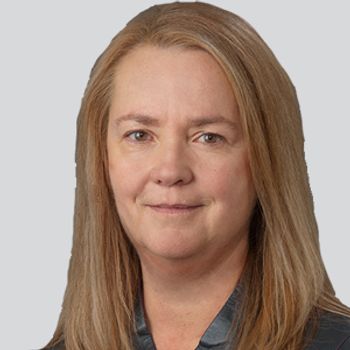
The study authors noted that clinicians should consider the data when recommending endovascular treatment for older adults.

Marco Meglio, Assistant Managing Editor for NeurologyLive, has been with the team since October 2019. Follow him on Twitter @marcomeglio1 or email him at [email protected]

The study authors noted that clinicians should consider the data when recommending endovascular treatment for older adults.

In part 2 of this interview, the vice president of AstraZeneca’s Cardiovascular and Metabolic Diseases portfolio discusses future trials with ticagrelor and when they anticipate a possible FDA approval.

The regulatory agency has set prescription drug user fee act action date of April 3, 2021, for the Acadia Pharmaceuticals product.

The treatment, marketed as Xywav, becomes the first treatment indicated for both cataplexy and excessive daytime sleepiness in people living with narcolepsy in 15 years.

As of February of this year, 121 unique therapies are involved in clinical trials for Alzheimer disease, with putative disease-modifying agents targeting disease onset or progression accounting for the largest number.

The vice president of AstraZeneca’s Cardiovascular and Metabolic Diseases portfolio discussed the findings of the THALES trial, and how ticagrelor stands alone among stroke treatments.

The FDA-approved medication showed a robust ability to decrease hours spent “on” with troublesome dyskinesia in patients with Parkinson disease.

REN may offer a novel alternative for current pharmacological and non-pharmacological treatments in chronic migraine that combines efficient treatment with minimal adverse effects.

The Clinigen Group’s ALS treatment is currently being investigated in a phase 2 trial that is expected to conclude in September 2021.

In addition to showing significant and clinically meaningful reduction in acute ischemic stroke and transient ischemic attack, ticagrelor showed a consistent safety profile to what has been observed in previous trials.

The 18F-PI-2620 radiotracer’s positive effect on diagnosing and differentiating patients with suspected progressive supranuclear palsy leaves questions about its potential as a PSP progression biomarker.

The findings are particularly relevant for prehospital stroke awareness and improvement of in-hospital acute stroke protocols.

Low-risk, digital video game interventions could represent a clinically valuable approach to improving processing speed in adults with multiple sclerosis.

In part 2 of this interview, Daniel Ontaneda, MD, PhD, the co-principal investigator of the CAVS-MS study, describes the long-term goals of the study and how the central vein sign will be incorporated into standard diagnostic criteria for multiple sclerosis.

Treatment with natalizumab helps both confirmed disability and functional system, suggesting it may be considered when evaluating treatment options for those with relapsing-remitting multiple sclerosis.

The FDA has set the Prescription Drug User Fee Act action date for Q4 2020 for the AstraZeneca agent.

Reduced amplitude and/or robustness of the rhythms, rather than disrupted timing, are the most indicative of a subsequent risk of PD, independent of nighttime sleep disturbances.

Findings of the study provide a cautionary note in relation to cannabis use in people with MS, at least with respect to depression.

The lack of effect on cognitive function provides reassurance to clinicians and parents for the developmental outcomes of a well-recognized, albeit relatively uncommon, adverse event after immunization.

One of the first case-series studies that analyzed children with COVID-19 suggest that SARS-CoV-2 should be considered for differential diagnosis in children presenting with new neurologic symptoms and splenium signal changes on MRI.

New findings indicate that cognitive health in old age depends in part on cognitive development in early life.

In part 1 of this interview, Daniel Ontaneda, MD, PhD, the co-principal of the CAVS-MS study, outlines the reasons for why the central vein sign can lower rates of misdiagnosing multiple sclerosis.

Biohaven’s verdiperstat has entered a phase 3 trial for the treatment of multiple system atrophy, with a new drug application submission on the agenda for late 2021.

No differences were observed between the insulin and placebo groups on several clinical outcome measures as well as biomarker evaluations.

People with Down syndrome may be a suitable population for clinical trials for Alzheimer disease as prevalence ranges from 90% to 100% by the seventh decade of life.

Cancer centers providing care for adolescent and young adult cancer survivors may consider committing resources to routinely screen for sleep disorders and to support patient access to evidence-based insomnia treatment.

In part 2 of this interview, the associate director of the Center for the Aging Brain at Montefiore Medical Center anticipates life with telemedicine after the pandemic and describes the at-home advantage it gives clinicians.

Worsened clinical outcomes for patients with MS due to an increase in comorbidities could provoke the need of greater management of them in the clinical care setting.

In part 1 of this interview, the associate director of the Center for the Aging Brain at Montefiore Medical Center discussed how she adapted quickly to optimizing telemedicine for elderly patients with Alzheimer disease and cognitive decline.

The findings advance the translation of soft robotic exo-suits from the laboratory to the clinic and may motivate future controlled efficacy trials.